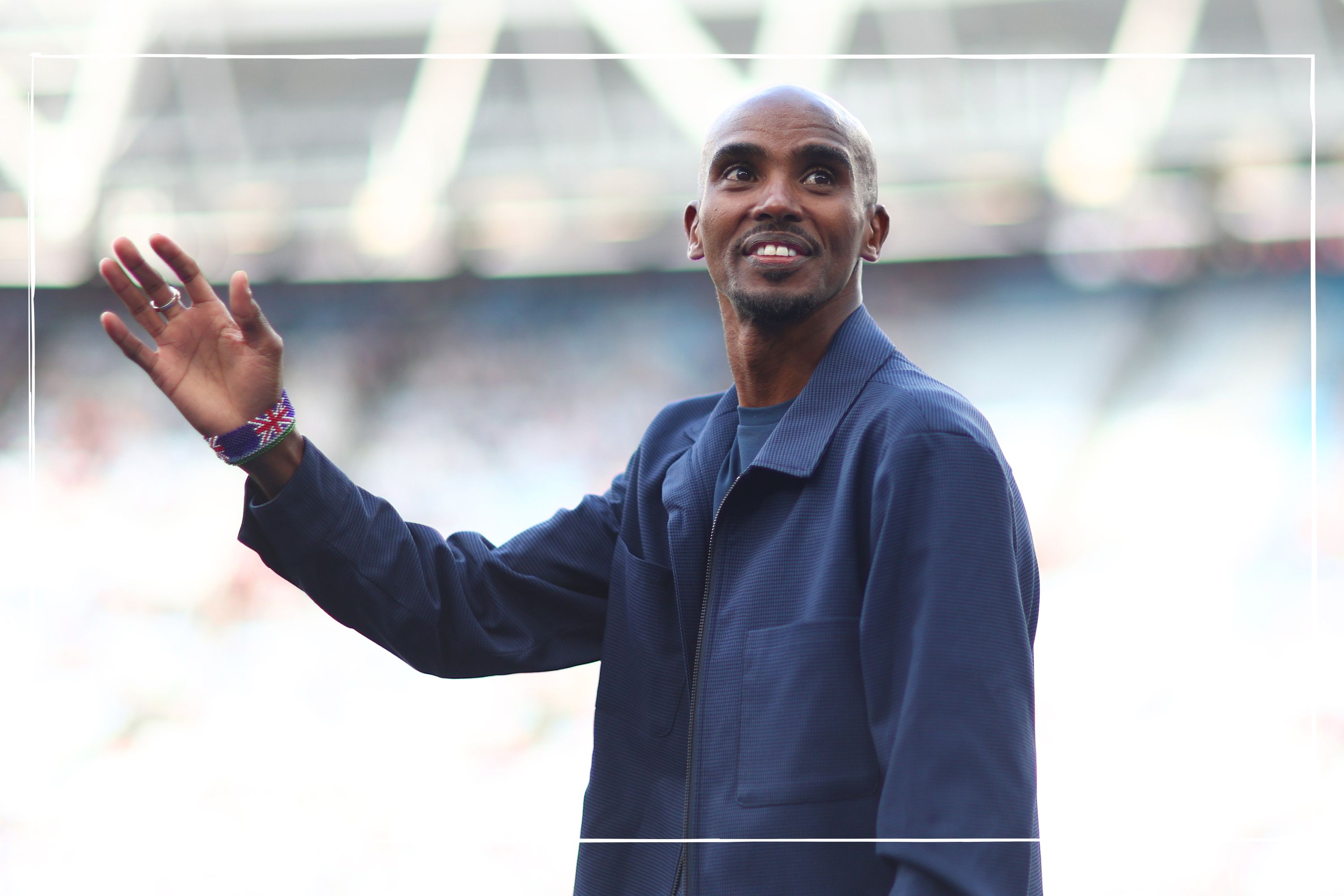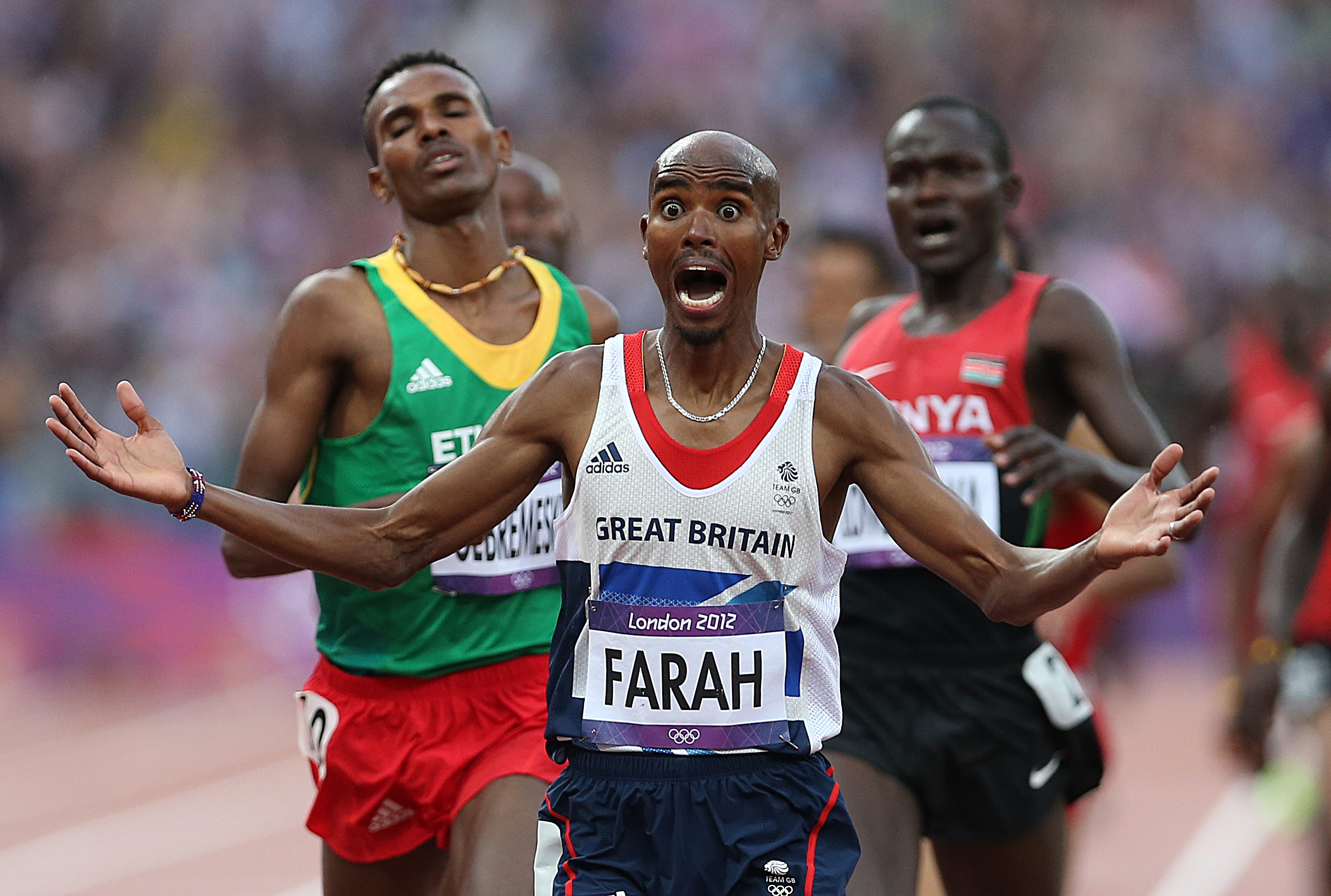What is Mo Farah’s real name and where is he from? His trafficking story as told in the Real Mo Farah documentary
A new BBC documentary has revealed the athlete was trafficked to the UK


Mo Farah has opened up about his past in a new BBC documentary. The Olympic athlete reveals he was trafficked to the UK as a young child, and that Mo Farah is not actually his real name.
Mo Farah is no stranger to the limelight. In addition to being a four-time Olympic gold medal winner and proud husband and dad, he's also taken to our screens for I'm a Celebrity and Soccer Aid. And most recently in a new documentary The Real Mo Farah where he revealed he'd been keeping a big secret about his past.
The father of four was taken away from his family and trafficked to the UK at just nine years under a new name. Here's everything we know about the athlete's past, including where he's from and his real name.
What is Mo Farah's real name?
Mo Farah's real name is Hussein Abdi Kahin. He was given the name Mohamed Farah by the people who flew him over from Djibouti, in East Africa, when he was nine years old.
In the documentary, Farah explains that after being sent away from his home in Somalia to stay with family in Djibouti, he was flown to the UK by a woman he had never met. The woman told him to say his name was Mohamed, and she had fake travel documents showing his photo next to the name 'Mohamed Farah'.

Previously, Farah had said that he came over from Somalia as a refugee. But, in reality, his parents have never been to the UK and he lived in England for more than 10 years before he was able to contact his mother.
Is Mo Farah a sir?
Mo Farah became a sir in November 2017, when he was knighted by the Queen at an investiture ceremony at Buckingham Palace. Though he was awarded the honour for his service to athletics, he swapped his running kit for a full morning suit and top hat during the ceremony.
GoodtoKnow Newsletter
Parenting advice, hot topics, best buys and family finance tips delivered straight to your inbox.
He had called time on his track career just a few months before the occasion, and said that when he met the Queen she told him that he had been 'going too long' and asked if he was retired.
Although Farah said he intended to move into road running, he did make one last bid for the Tokyo Olympics. Unfortunately, the four time Olympic champion failed to qualify, meaning he was missing from the British team for the first time since 2004.
A post shared by Sir Mo Farah🇬🇧🥇🥇🥇🥇 (@gomofarah)
A photo posted by on
Where is Mo Farah from?
Mo Farah is from Somaliland - a region in northern Somalia that broke away and declared independence in 1991 - where his mother and two brothers still live. Farah spent his early years on the farm with his family, including his twin brother, Hassan, who was also sent to live with family in Dijibouti.
In July 2000, Farah was granted British citizenship. The BBC documentary explains how, at age 14, he was invited to compete for English schools at a race in Latvia, but he didn't have any travel documents. His PE teacher, Mr Watkinson, helped him apply for British citizenship.
Though this was technically obtained by fraud, the Home Office has confirmed they will not be taking any action.
Mo Farah: Trafficking story
At nine years old, Sir Mo Farah was brought to the UK illegally and forced to work as a domestic servant. The documentary reveals how, when he arrived in London, the woman he was travelling with took the piece of paper that had his relatives' contact details on, ripped it up and put it in the bin. He said it was at that point he knew he was in trouble.
After being forced to do housework and childcare, Farah eventually confided in Mr Watkinson, who contacted social services and helped Sir Mo to be fostered by another Somali family. Farah said of that time "I still missed my real family, but from that moment everything got better. I felt like a lot of stuff was lifted off my shoulders, and I felt like me. That's when Mo came out - the real Mo."
Who are Mo Farah's parents?
The Olympian was born to father Abdi and mother Aisha in a turbulent time in Somalia, towards the beginning of the Somali Civil War. Farah's father was killed by stray gunfire when he was just four years old, but he had previously claimed his dad was an IT consultant who had grown up in London before moving back to Mogadishu.
The rest of his family remained in Somalia and, after being trafficked to the UK, Farah had no way of contacting them. It was more than 10 years later, once his profile had grown in the Somali community, that his mother was able to get in contact. A woman approached him in a London restaurant and gave him a tape containing a recorded message from Aisha, with a note on the back asking him to call her.
In an interview for the documentary, Aisha describes how she felt when he first called her, saying "When I heard him, I felt like throwing the phone on the floor and being transported to him from all the joy."
What school did Mo Farah go to?
Mo Farah went to school in Hounslow, London, at Feltham Community College - which is now called Springwest Academy - where he first met his wife, Tania Nell.
For his first few years in the UK, the family he lived with didn't let him go to school. When he was eventually enrolled, staff at the school were told Sir Mo was a refugee.
His form tutor, Sarah Rennie, says in the documentary that Farah was 'emotionally and culturally alienated', but his PE teacher, Alan Watkinson, says he noticed a transformation when the young Farah was on the athletics track.
When talking about that time, Farah says "the only thing I could do to get away from this [living situation] was to get out and run."
Video of the Week

Ellie is GoodtoKnow’s Family News Editor and covers all the latest trends in the parenting world - from relationship advice and baby names to wellbeing and self-care ideas for busy mums. Ellie is also an NCTJ-qualified journalist and has a distinction in MA Magazine Journalism from Nottingham Trent University and a first-class degree in Journalism from Cardiff University. Previously, Ellie has worked with BBC Good Food, The Big Issue, and the Nottingham Post, as well as freelancing as an arts and entertainment writer alongside her studies. When she’s not got her nose in a book, you’ll probably find Ellie jogging around her local park, indulging in an insta-worthy restaurant, or watching Netflix’s newest true crime documentary.